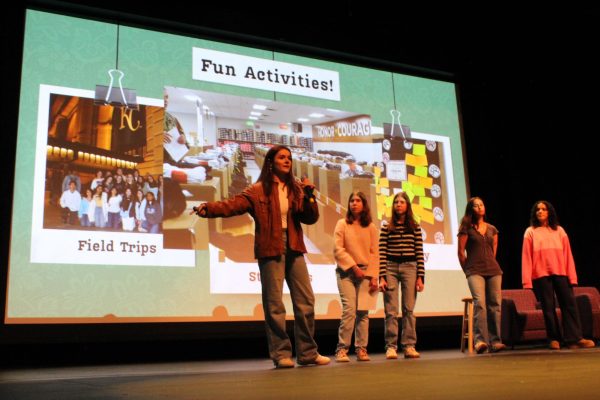How LHS is addressing the use of Artificial Intelligence
“The use of Artificial Intelligence (AI) in classrooms has become a growing concern as students can use it to complete assignments for them. While official rules on AI have yet to be created at LHS, teachers are beginning to create their own policies to address this issue.”
That intro was written by ChatGPT. One could debate the quality of the writing, but no one can deny how easy it was to create. For this reason, the rise of Artificial Intelligence and machine learning has the potential to change the world and the education system as we know it. In fact, it already has.
What is AI?
According to American Progress, Artificial Intelligence, or AI, is the ability of computers and machines to mimic how humans perceive things, complete tasks and make decisions. This can be problematic for schools, as students can use AI to help them with or even complete assignments for them, especially those heavy in writing.
The rollout of ChatGPT, a free AI-based chatbot, has led the charge of new AI technologies since it was released in November 2022. Because it is user-friendly, easily accessible and accurate, educators around the country have sounded the alarm. ChatGPT can be used to quickly plagiarize school assignments like essays that would have otherwise been completed by the student.
How is LHS Addressing AI?
According to Dr. Ray Albin, associate principal for curriculum and instruction, LHS and District 128 have not created an official rule or released any statements as to how AI is going to be treated.
“At this time we’re not ready to say whether that’s going to be a part of [the District 128 student handbook] or not,” said Dr. Albin. “That really is a process that happens over the summer.”
While no blanket rule has been created, Dr. Albin stressed that AI will be looked at no differently by the administration than any other technology that has been created in the past.
“Right now, our job is similar to almost any new technology that we have had, which is to learn about it,” said Dr. Albin. “Learn responsible use of it from both our teacher end and our student end to find out where it fits within our curricular plan, or not.”
English teacher Mr. Ryan Ebling said, “At this point, it would be very difficult to come up with a school policy that’s actually effective and meaningful.”
Regardless, this issue has come up and teachers have begun to see it play out in class assignments. Social studies teacher Mr. Kevin O’Neill has recently had an experience in which he found a student using AI to generate a paper.
“My World History kids had a paper due about a month ago and I’m pretty sure I’ve read my first AI generated paper,” said Mr. O’Neill. “The vocab level was way above what this particular student usually produced. And so that was my first like, ‘oh. Here we go. Like this is a thing. It’s real.’”
Because rules on AI do not currently fall under the D128 Student Handbook, Mr. O’Neill proceeded with the situation on his own.
“I feel like we’re too at the forefront of it [to create a school policy],” said Mr. O’Neill. “A school policy right now would be a knee jerk policy without really knowing a lot. I think allowing teachers to come up with their own policies right now is probably better.”
Mr. Ebling also had students using AI before he even suspected it. He had a student use it last semester; however, he didn’t realize it until after grades were submitted so it was too late to penalize their grade.
“When [my co-teacher and I] have caught it in other students, we’ve actually taken away the ‘you do it at home,’ [option] ” said Mr. Ebling. “Students [caught teaching] have to now write the essay in front of us and have to start over with a new topic or a new source.”
Besides defeating the purpose of the assignment, namely learning, AI can also damage the relationship between student and teacher.
“[Using AI] erodes trust, and I really want to be able to trust my students,” Mr. Ebling said.
Experiences like that of Mr. O’Neill and Mr. Ebling are going to become a reality and a more frequent occurrence for all teachers across the country.
What does the future hold?
According to Dr. Ray Albin, associate principal for curriculum and instruction, LHS and District 128 have not created an official rule or released any statements as to how AI is going to be treated.
“At this time we’re not ready to say whether that’s going to be a part of [the District 128 student handbook] or not,” said Dr. Albin. “That really is a process that happens over the summer.”
While no blanket rule has been created, Dr. Albin stressed that AI will be looked at no differently by the administration than any other technology that has been created in the past.
“Right now, our job is similar to almost any new technology that we have had, which is to learn about it,” said Dr. Albin. “Learn responsible use of it from both our teacher end and our student end to find out where it fits within our curricular plan, or not.”
English teacher Mr. Ryan Ebling said, “At this point, it would be very difficult to come up with a school policy that’s actually effective and meaningful.”
Regardless, this issue has come up and teachers have begun to see it play out in class assignments. Social studies teacher Mr. Kevin O’Neill has recently had an experience in which he found a student using AI to generate a paper.
“My World History kids had a paper due about a month ago and I’m pretty sure I’ve read my first AI generated paper,” said Mr. O’Neill. “The vocab level was way above what this particular student usually produced. And so that was my first like, ‘oh. Here we go. Like this is a thing. It’s real.’”
Because rules on AI do not currently fall under the D128 Student Handbook, Mr. O’Neill proceeded with the situation on his own.
“I feel like we’re too at the forefront of it [to create a school policy],” said Mr. O’Neill. “A school policy right now would be a knee jerk policy without really knowing a lot. I think allowing teachers to come up with their own policies right now is probably better.”
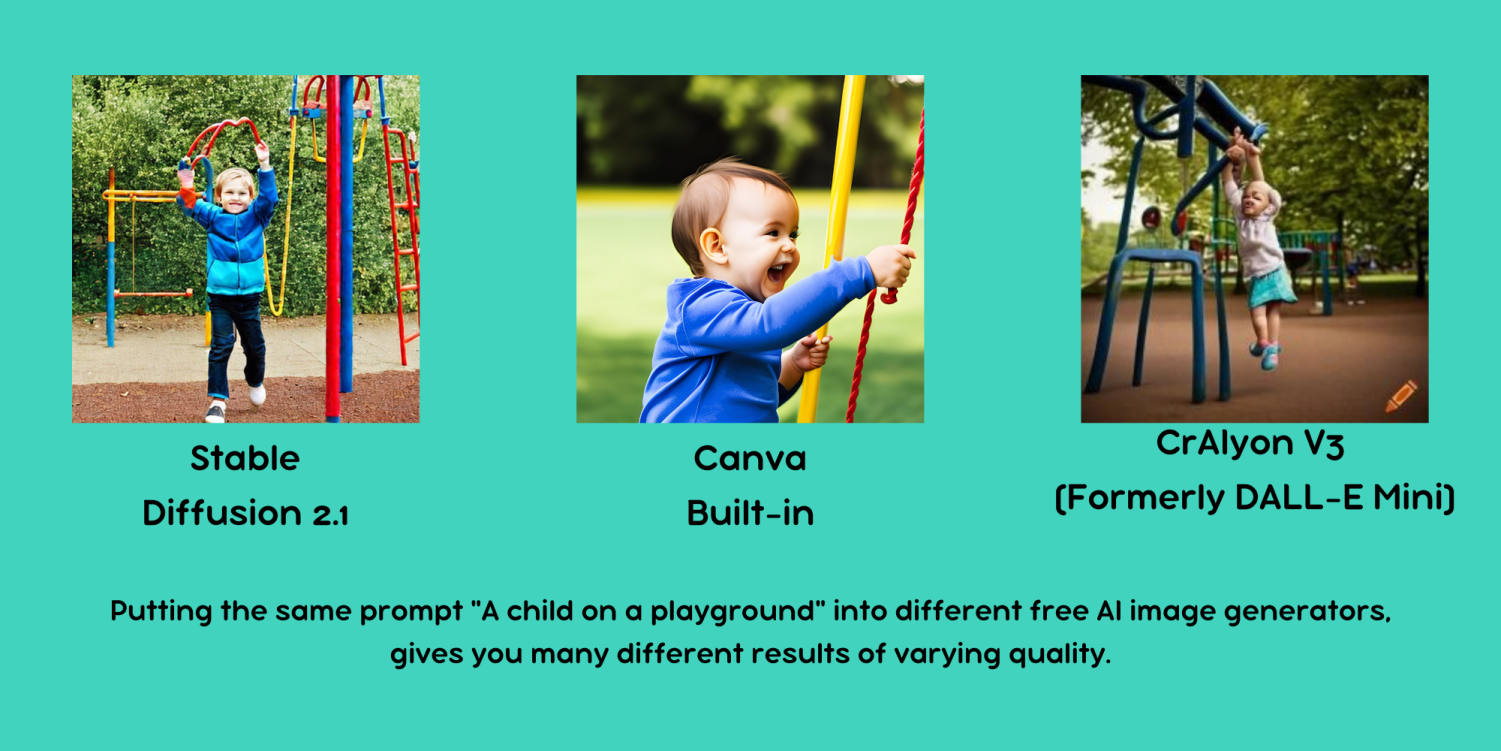



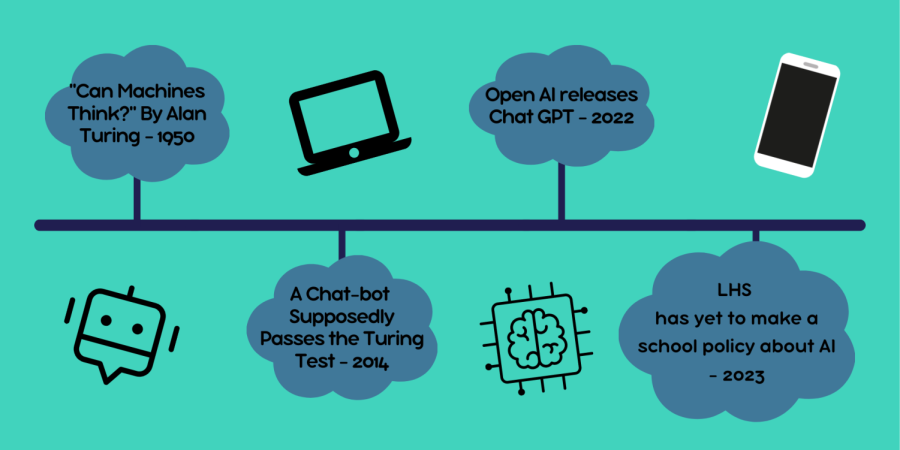
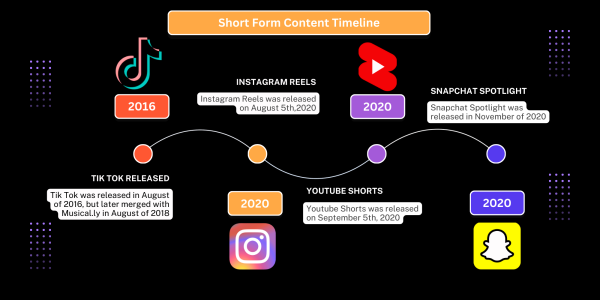

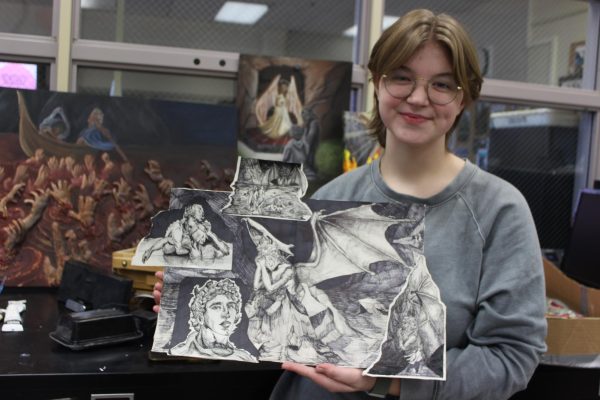
![Senior River Thompson joins the Jazz Ensemble by singing “That Old Black Magic” by Mercer and Arlen Arr. Mark Taylor, along with senior Annie Brody on guitar and junior Thomas Teixeira on bass, earning big applause. “[The concert had] great energy because it's the last [jazz concert] of the year,” Brody said.](https://www.lhsdoi.com/wp-content/uploads/2025/04/Eight-That-Old-Black-Magic-600x400.jpg)
![Mr. Abullh Ali, manager/assistant, helps open Queen Yemeni Coffee in downtown Libertyville at 606 North Milwaukee Ave. With the help of employees such as manager and LHS senior Yousef Taha, they are able to bring the Yemeni and Ethiopian culture to Libertyville by using their Queen spices, cinnamon and cardamom in their drinks such as Adani Chai, which is inspired by Sheda, the Queen of Yemen and Ethiopia. “The history of our coffee [is] a long history and we believe that Yemen and Ethiopia started the coffee and we are bringing something unique to the community,” Mr. Ali said.](https://www.lhsdoi.com/wp-content/uploads/2025/04/Photo-1-600x400.jpg)

